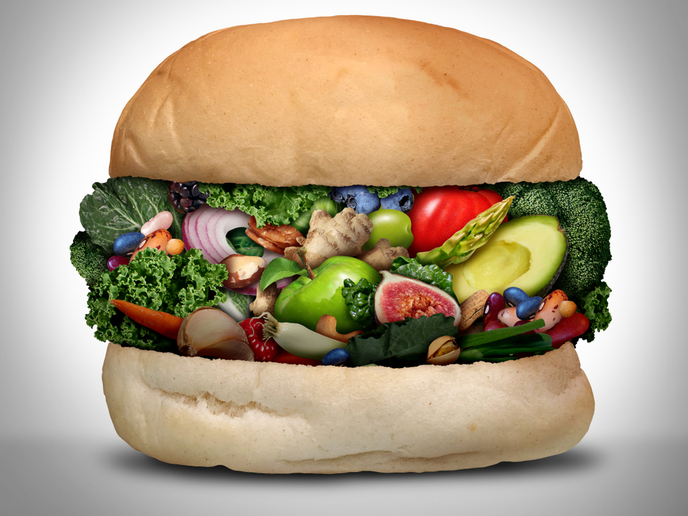Europe’s plant-based food industry shows record-level growth
Plant-based options are no longer a novelty on the shelves and in the fridges of supermarkets and discount stores across Europe. But just how big is the market for these foods? A new report published by the EU-funded SMART PROTEIN project analysed retail data from 11 European countries to reveal exactly how much plant-based consumption increased in the region from 2018 to 2020. The report offers valuable insight into European consumer habits that could help food producers and retailers to identify promising market segments. According to the research results, Europe’s plant-based food industry grew an astonishing 49 % overall in that 2-year period, amounting to a total sales value of EUR 3.6 billion. The plant-based categories analysed were meat, milk, yoghurt, cheese, ice cream and fish, depending on the availability in each country.
Plant-based meat and fish
The report shows a huge increase in the sales value of plant-based meat over 2 years, with the biggest growth coming from Germany (226 %), followed by Austria (82 %). Interestingly, discounters showed higher growth rates than the overall markets in a number of countries. The most striking examples were Romania (with a 154 % growth in sales value, compared to the overall market growth of 27 %) and France (100 %, compared to 31 % overall growth). The only recorded drop in plant-based meat sales was in Italy (-10 %). Germany, the only country with figures for plant-based fish, showed a whopping 623 % increase in sales value, from EUR 251 000 in 2018 to EUR 1.9 million in 2020.
Plant-based milk and dairy products
Milk alternatives are more widely accepted, so it comes as no surprise that these products were the fastest growing category in most of the countries, with oat milk sales leading the sector. Double-digit growth in the sales value of plant-based plain milk was reported in Poland (76 %) and Romania (73 %), with discounters in the 2 countries achieving 126 % and 316 % growth, respectively. The Netherlands takes the lead in plant-based cheese sales, with a growth rate of 400 %. In Belgium, the sales value of plant-based (soy) yoghurt grew an astonishing 497 % in discounters. “Finally, we can see the tremendous growth of plant-based food in Europe reflected in concrete numbers,” commented Senior Consumer Research Scientist Dr Kai-Brit Bechtold of SMART PROTEIN project partner ProVeg International on the project website. “This report clearly reveals the huge increase in sales of plant-based food, providing a green light to the food industry to further pursue plant-based options.” SMART PROTEIN (Smart Protein for a Changing World. Future-proof alternative terrestrial protein sources for human nutrition encouraging environment regeneration, processing feasibility and consumer trust and accepta) is working to develop the next generation of cost-effective, environment friendly and nutritious smart protein foods. The project ends in June 2024. For more information, please see: SMART PROTEIN project website
Keywords
SMART PROTEIN, plant-based, food, sales value, protein, meat, milk



